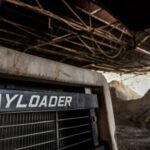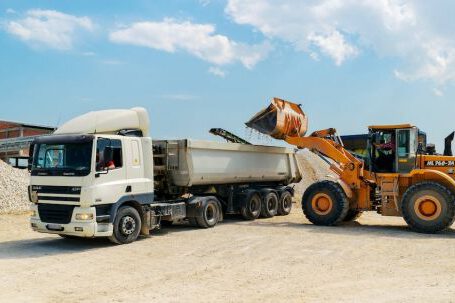Are you looking for the right loader for a construction project? This ultimate guide will help you pick the perfect one for your needs.
When it comes to construction, having the correct equipment is essential. Loaders are among the most frequently used machines on construction sites and are essential for moving materials, excavating, and loading and unloading trucks. Whether you are a builder, contractor, or building owner, having the right loader is essential to the success of your project.
Factors to Consider When Choosing a Loader
Before you purchase or rent a loader for your project, there are several factors to consider.
- Size. Loaders come in a variety of sizes. The size you need will depend on the type of material you are planning to move and the size of your project. Larger loaders are more powerful and can move more material. Smaller loaders are more maneuverable and can access tight areas that larger machines cannot.
- Weight. Loaders come in a range of weights. The weight and size of the loader you choose should be in line with the other equipment and materials you are using on the project. Heavier loaders are more powerful and can move larger quantities of material, but they can also cause more damage to the ground.
- Capacity. Loaders have a range of capacities, from small buckets to large buckets. Consider the type of material you are moving and the amount of material you need to move when selecting a loader. Larger buckets can move more material in a shorter period of time.
- Engine. The engine is a major factor to consider when selecting a loader. Larger engines can move more material and are more powerful, but they are also more expensive to maintain. Smaller engines are less powerful, but they are also less expensive to maintain.
- Attachments. Loaders can be fitted with a range of different attachments, such as grapples, forks, and buckets. Consider the type of material you are moving and the type of job you are doing when selecting attachments for your loader.
- Price. The cost of a loader will depend on the size, weight, engine, and attachments you select. Consider your budget when selecting a loader and compare prices from different suppliers. Renting a loader may be a more cost-effective option than purchasing one.
Types of Loaders
There are several types of loaders available for construction projects.
- Skid Steer Loaders. Skid steer loaders are small and maneuverable and are typically used for small jobs. They are easy to operate and are relatively inexpensive to maintain.
- Compact Track Loaders. Compact track loaders are larger and more powerful than skid steer loaders. They are typically used for larger jobs, such as excavating and grading. They are more expensive than skid steer loaders, but they are more powerful.
- Wheel Loaders. Wheel loaders are large and powerful and are typically used for heavy-duty jobs, such as loading and unloading trucks. They are more expensive than skid steer and compact track loaders, but they are more powerful and can move larger quantities of material.
Tips for Using a Loader
Once you have selected the right loader for your project, there are several tips to keep in mind when using it.
- Always wear the appropriate safety gear when operating a loader, including a hard hat, steel-toed boots, and safety glasses.
- Familiarize yourself with the loader and read the operator’s manual before operating it.
- Make sure the loader is in good working order and all the safety features are functioning properly.
- Be aware of your surroundings and be careful not to damage the ground or nearby structures.
- Check the load before lifting it to ensure it is secure.
- Do not overload the loader and be careful not to exceed the load capacity.
- Keep a safe distance from other workers and be aware of their location when operating the loader.
Conclusion
Picking the right loader for your construction project is essential to the success of the project. Consider the size, weight, engine, attachments, and price when selecting a loader. Take the time to familiarize yourself with the loader and read the operator’s manual before operating it. Following these tips will help ensure that your project goes smoothly and safely.






